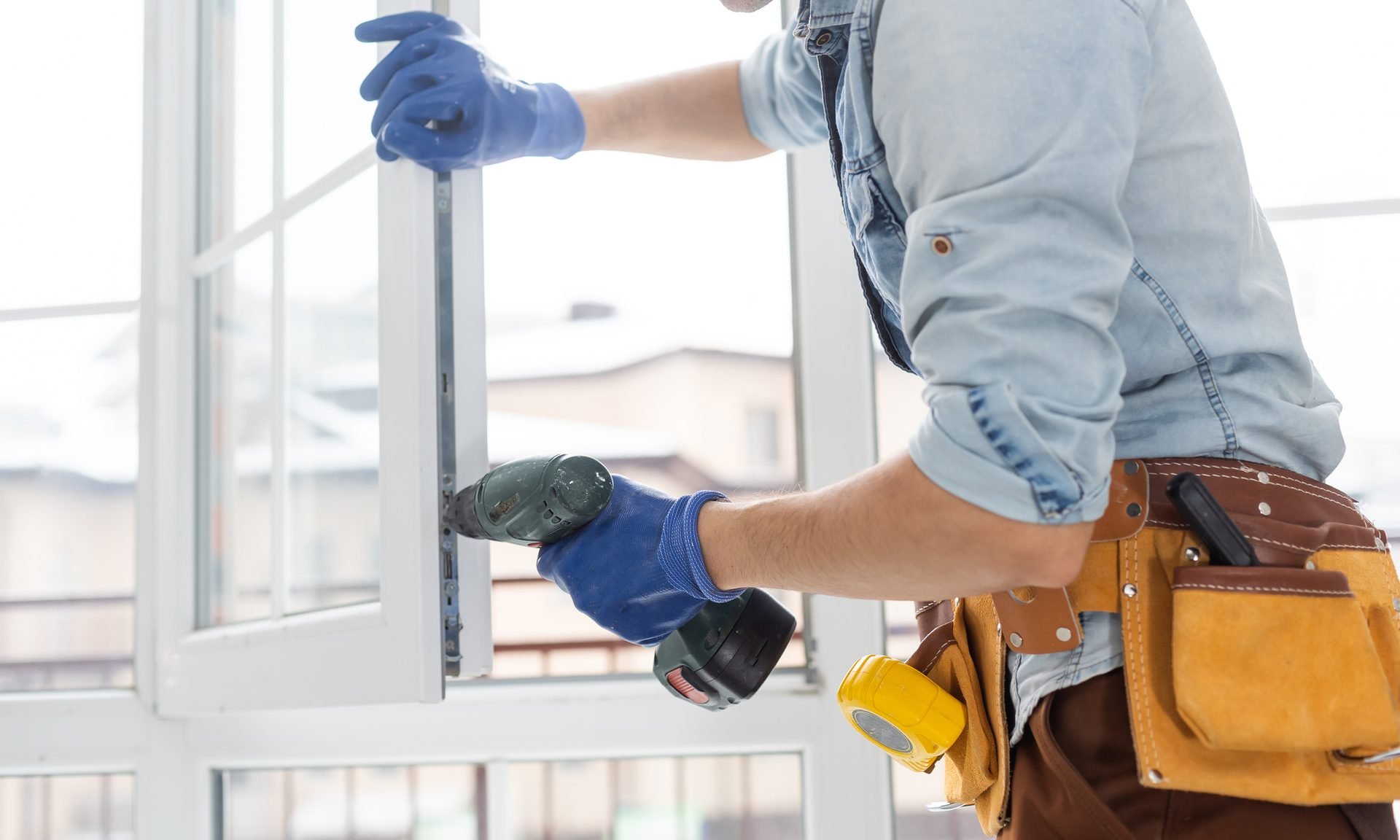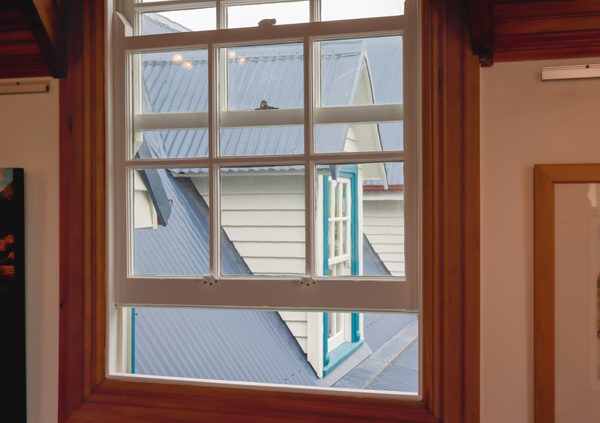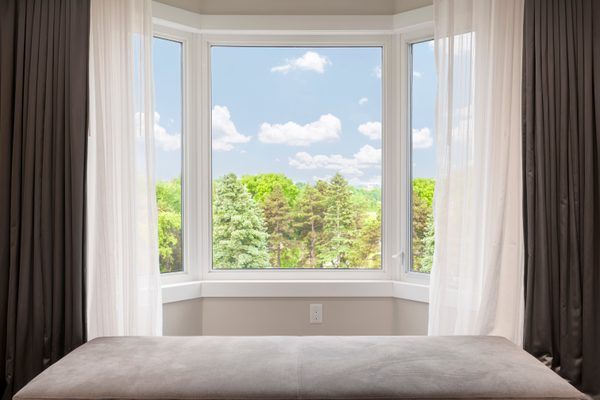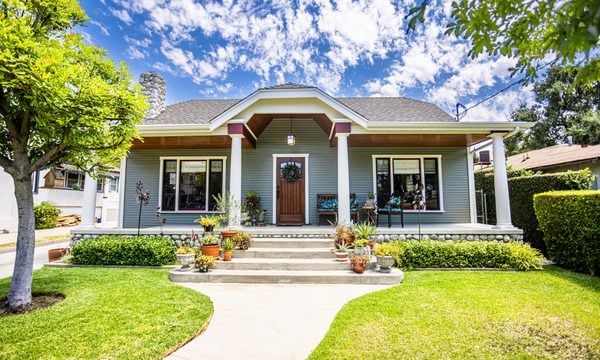Cost to Install Replacement Windows in 2026: Is It Worth It?
New windows can be costly, but they can be worth the increased curb appeal and energy efficiency.

Some or all of the mortgage lenders featured on our site are advertising partners of NerdWallet, but this does not influence our evaluations, lender star ratings or the order in which lenders are listed on the page. Our opinions are our own. Here is a list of our partners.
New windows typically cost between $300 and $2,500 each, depending on the type you choose. It may be worth it to replace your windows if they’re visibly damaged or if they’re not able to properly insulate your home, which can result in high energy bills.
Windows come in a wide range of styles and materials, so prices can vary. It’s typically more cost-effective to replace multiple windows at once. Here’s what to know.
Why it’s worth it to replace your windows
Home value
Replacement windows can increase your home’s value, but probably not dollar for dollar. The return on investment for window replacement is 70% to 85%.
Replacing your windows can improve your home’s curb appeal (especially if the previous windows were visibly damaged), provide better security and be more energy efficient — all factors that could interest buyers.
Energy efficiency
Windows that aren’t energy efficient require your heating and air-conditioning systems to work harder, increasing your monthly energy bill. According to the Department of Energy, heat gained or lost through windows accounts for 25% to 30% of a home’s total heating and cooling energy use .
Replacing older single-pane windows with windows that meet Energy Star certification standards may reduce household energy bills by an average of 13% . Homeowners can also claim up to $600 in federal tax credits through 2025 for new windows that meet Energy Star Most Efficient certification requirements .
The average cost to replace windows
Windows cost about $300 to $2,500 each to replace. The cost to replace 25 windows in your home averages around $18,000 to $20,000, though the final price depends on the style, materials and glass you choose.
Replacement window costs by style
Here are the most common types of replacement windows, with corresponding price estimates per window.
- Double-hung: $150-$650. This window opens from the top and the bottom, providing additional ventilation and air circulation.
- Single-hung: $100-$400. Half of the window remains in place; the other half slides to open.
- Sliding: $150-$800. This window opens horizontally along a track, making it a common choice for windows that extend close to the ceiling.
- Bay: $900-$7,100. The window combines three or more panes and extends outward from a room. It is also load-bearing and may require additional support.
- Casement: $150-$1000. The window is hinged on one side and opens outward.
- Picture: $65-$700. This window uses large panes of glass that don’t open, making it suitable for letting in light and views.
- Awning: $400-$950. The window opens outward from top-mounted hinges so it can be opened when it rains.
» Learn more: How to pick the best windows for your home
Nerdy Perspective
Prices on the higher end generally account for hiring an expert installer; you can keep costs lower by using a handyperson. Involving a structural engineer or contractor (for example, if you’re installing a bay window where there wasn’t one previously) can also drive up pricing. You can replace windows yourself with the right tools and preparation, especially if you’re just replacing the glass panes. However, installation involving complex frames, siding, and windows on upper floors may be too challenging for a DIY project.



Advertisement
Replacement window costs by frame material
Below are the average costs for each type of replacement window frame.
- Vinyl: $100-$900. Vinyl is a popular choice because of its relatively low cost and easy maintenance.
- Wood: $150-$1,300. Wood frames can create a timeless look, but be aware that they can require the most upkeep due to rotting and warping.
- Aluminum: $75-$400. Aluminum is the most economical option, but it’s not as energy-efficient as alternatives.
- Fiberglass: $500-$1,500. The most expensive option, fiberglass windows are also the most energy-efficient and require the lowest amount of maintenance.
- Composite: $300-$1,200. Composite windows combine wood with polymers or aluminum to create a stronger frame than wood or vinyl.
Replacement window add-on costs
These glass choices and upgrades affect your price as well:
- Lamination or tempering for extra strength.
- Tint for extra privacy during the day.
- Glazing and coatings that reflect heat.
- Gas fills and spacers that form a heat transfer barrier between panes.
What Reddit users say about replacing windows
Reddit is an online forum where users share their thoughts in “threads” on various topics. The popular site includes plenty of discussion on financial subjects like home improvement, so we sifted through Reddit forums to get a pulse check on how users feel about window replacement costs. People post anonymously, so we cannot confirm their individual experiences or circumstances.
Reddit users have varying opinions on whether it’s worth it to replace windows. Some users report a big difference in sound reduction, and lower heating and cooling loss that reduced their energy bills and improved their quality of life. Others say that if you live in a temperate climate or already have double-pane windows, new windows may not be worth the cost. Several users suggest booking an energy audit or recaulking windows before investing in window replacement.
Frequently Asked Questions
Is it worth it to replace all my windows at once?
Yes, it’s typically more cost-effective to replace multiple windows at once to save on labor prices. If a whole-home window replacement project is within your budget, investing in the larger project can kickstart your energy bill savings from energy-efficient windows and improve your home’s curb appeal all at once.
Otherwise, replacing at least five windows can still be much less expensive per window in installation costs. If you only need to replace one or two windows, consider hiring a handyperson instead of working with a large window company.
Can I replace windows myself?
You can replace windows yourself with the right tools and preparation, especially if you’re just replacing the glass panes. However, installation involving complex frames, siding, and windows on upper floors may be too challenging for a DIY project.
Article sources
NerdWallet writers are subject matter authorities who use primary,
trustworthy sources to inform their work, including peer-reviewed
studies, government websites, academic research and interviews with
industry experts. All content is fact-checked for accuracy, timeliness
and relevance. You can learn more about NerdWallet's high
standards for journalism by reading our
editorial guidelines.
- 1. U.S. Department of Energy. Update or Replace Windows. Accessed Sep 28, 2025.
- 2. EnergyStar.gov. Residential Windows, Doors, & Skylights. Accessed Sep 28, 2025.
- 3. IRS.gov. Energy Efficient Home Improvement Credit. Accessed Sep 28, 2025.
More like this
Related articles











